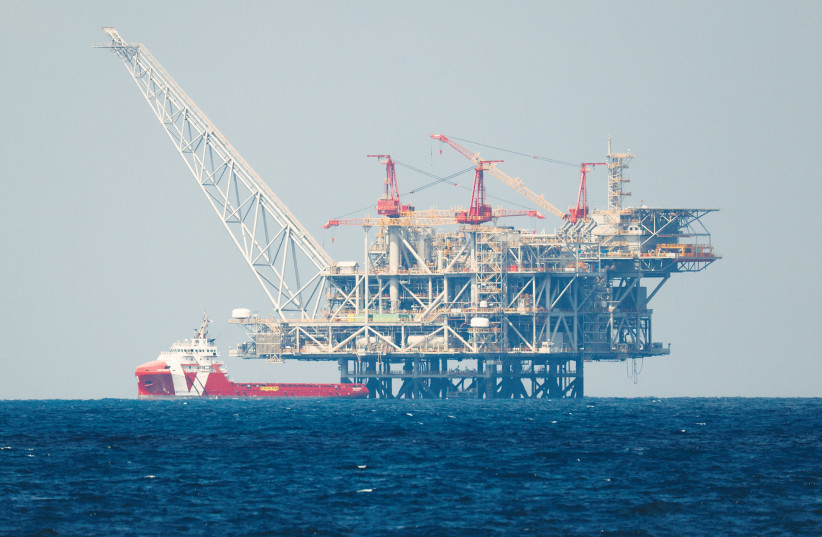A senior German minister has called for a discussion about boycotting the import of Russian natural gas in reaction to the alleged atrocities of Russian soldiers in Ukraine. Morally, an absolutely correct stand. It is easy to imagine the discussion, if it takes place when fellow European politicians will point to their countries’ dependence on the importation of oil and natural gas and even coal, yes, coal to the continent in which the Green Deal is its new flagship.
The European Union imported 155 billion cubic meters (BCM) from Russia in 2021. Half of Germany’s imported gas arrives from Russia, 46% in Italy and a quarter in France, the three leading economies of the EU and all members of the G7. Not surprisingly, the EU has not imposed sanctions on the this sector, but the issue has been very high on the agenda.
Following his three summits with the leaders of the EU, NATO and the G7 on March 25, President Biden declared that the US will inject 15 BCM of natural gas to the world market in 2022 with more to come in the future. They will release one million oil barrels a day in the next 6 months from its strategic reserves in an effort to lower supply and price pressures. The president must have had his own country on his mind and its economic indicators showing growing inflation in which rising fuel prices are a key factor.
Israel and Egypt are producers of natural gas and the question is whether they or other east Mediterranean potential producers are relevant to the current situation. Given production capacity, existing supply contracts and conveyance capacity, Israel may have 10 BCM annually to add to Europe’s demand, while Egypt is mostly engaged in its domestic market.
Egypt though becomes a key player if Israel is asked to help mitigate a crisis in Russia’s natural gas supply to Europe, since currently it holds the sole connection for the Israeli gas to Europe. There are two ways to convey natural gas – pump it into pipes or liquefy it, load it on specially built tankers and re-gasify it at the other end, close to the client. The liquefacation of natural gas (LNG), its shipping and regasification require investments of billions of dollars.

Israel has been able to avoid these investments because after deducting sufficient quantities for long term Israel domestic consumption and that by close regional buyers, about 500-600 BCM are left for exports, assuming no new fields are discovered. That quantity does not justify huge investments.
The most feasible financial and technical option is a pipe that would connect east Mediterranean gas fields to Turkey’s web of pipelines, which connect central Asia gas fields to Europe. The political feasibility of this option is marred by Turkey’s President Erdogan’s unpredictability, let alone conflicts, such as those between Israel Syria and Lebanon, the Exclusive Economic Zones of which the shortest route of this pipe will have to cross, or the conflict between Turkey, Cyprus and Greece. In the last decade, Israel and Egypt have forged close cooperation with the two Hellenic Mediterranean neighbors, which they would like to preserve while finding the miraculous formula that will enable all these old conflicts to be pushed aside seems unlikely.
What is left in this situation if Israel can relatively quickly move about 10 BCM to Europe but has no immediately available way of doing that, is to use floating liquefying installations, which are movable and can be located close to gas fields. They are costly but less than the fixed ones. This option does not rule out continuing the use of the pipeline from the Israeli gas fields to Egypt or pursuing the study of a pipeline to Turkey.
All these options depend, of course, on the European decision to purchase natural gas from the east Mediterranean. The EU has financed a study of a pipeline from the gas fields of the region to Europe but seems indifferent to this project.
When considering the LNG from the region, the EU and the US should also consider the probability, though not high, that Lebanon, a declared bankrupt state, would come to its senses and agree to settle the maritime border dispute with Israel in an equitable manner. That may unblock its ability to start the production of natural gas in its economic waters. The foreign companies involved, Chevron on the Israeli side, Total and Eni on the Lebanese side, will then find it easy to reach operational agreements on the joint use of pipes and liquefying equipment.
The pace of Israel depleting its natural gas reserves by local and regional consumption, and preferably with European demand, will also determine how fast it moves towards reliance on renewable energy sources .The Russian invasion of Ukraine is a human, moral and economic disaster. It may be also remembered as a major catalyst in the elimination of dependence on fossil energy resources, not just Russian ones.
The writer is a senior researcher at the Institute for National Security Studies, Tel Aviv University, and a veteran Israeli diplomat.
